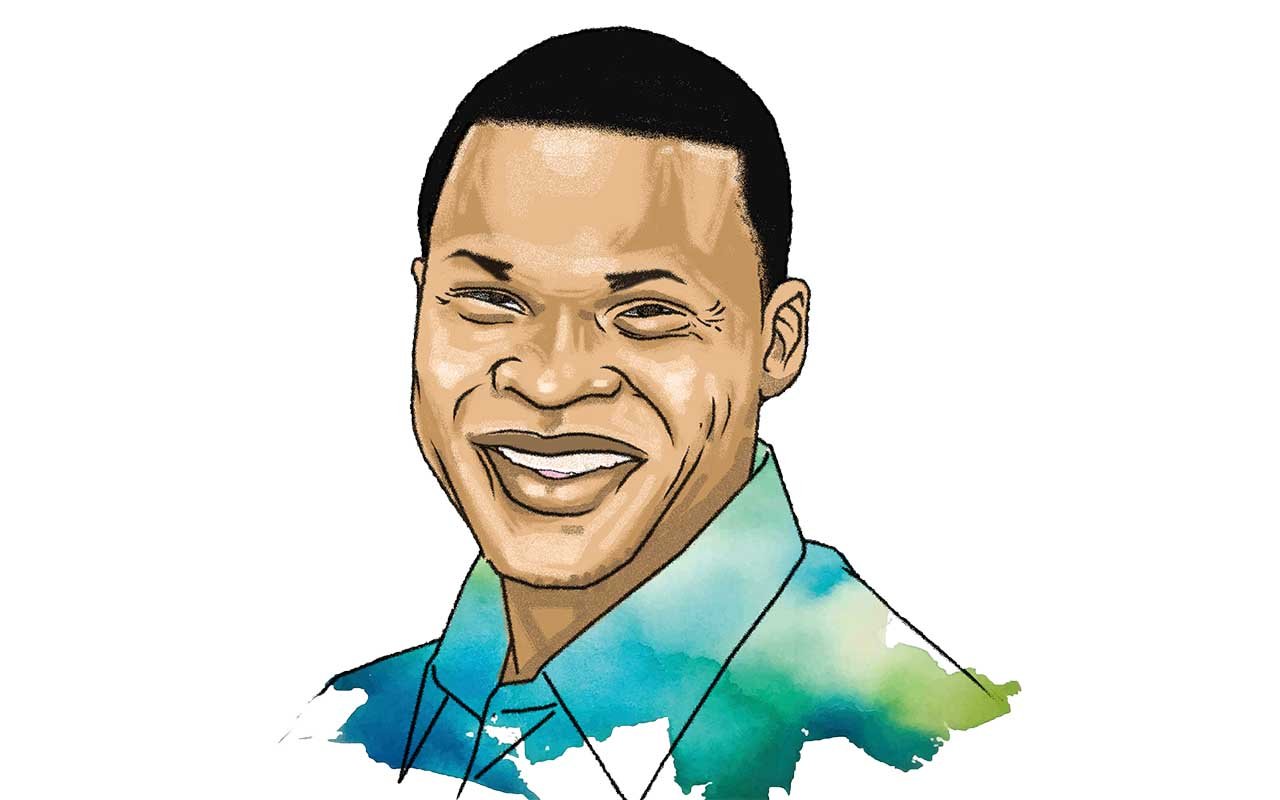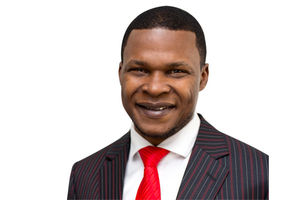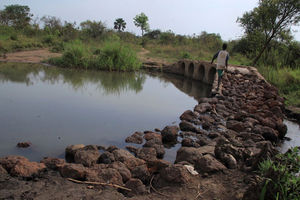
NJ Ayuk, the executive chairman of African Energy Chamber.
“Uganda is doing better than most people expect. Being able to deploy her oil resources and produce oil last also gives Uganda a chance to learn from the mistakes of others and build upon them. The country also has many qualified people, an excellent regulatory environment, and has established a very good working relationship with the investors in the country,” Mr NJ Ayuk, the executive chairman of African Energy Chamber opines.
I met him last month at the Youth in Energy conference. At once, his humility, which never leaves you thinking less of him, stood out.
The Cameroonian native established the first African law firm—Centurion Law Group—that is listed on the German stock exchange. Though a lawyer before an energy forerunner, his passion for energy drives his life. Immensely.
“Driving energy in Africa has become the work of my life because energy is crucial for Africa’s development,” he tells me on the fringes of the conference.
“I come from a small community in Cameroon where the electricity supply was often punctuated by blackouts. That is why I feel that those of us who have been privileged bear the solemn obligation to help our communities rather than simply chase the big salary and the job on the 25th floor. I would call that poverty in ambition because we have to lift our continent, leaving it better than we found it,” he adds.
Mr Ayuk shares that it starts with picking on unpopular issues that drive livelihoods such as energy poverty. This is intertwined with engaging youth in energy private sector delivery.
Start
The Cameroonian’s first footprint in the energy sector was when he negotiated a contract for a small energy company then. Apex Global is its name, he disclosed. The complexity of the negotiations was thrilling and it tugged at his heart, drawing him into oil and gas matters. He continued to negotiate contracts for Gazprom, Luke Oil, and Vanco Energy.
“These lit up the world for me because I felt that energy is something I want to do. I also saw the change that it could be for many of us and I never looked back,” he says.
Africa unite
From the African Energy Chamber’s perspective, Mr Ayuk reckons the focus is on why the decibels of voices against the East African Crude Oil Pipeline Project (Eacop) keep increasing.
“I have been around the world driving the energy sector, gaining a big voice in the industry and I tell you that this is not fair. Stopping Eacop is not about climate change but stopping Uganda,” he reasons, his voice firm. “See Uganda is going to produce 230,000 to 240,000 barrels of oil per day. That is just 1.8 percent of US oil production. So are you saying that 1.8 percent of US production coming from Uganda is going to be the one that destroys the world?”
He proceeds to note thus: “The wealthy nations in Europe or the United States are producing a lot of oil to take care of their people yet Uganda’s energy sector is marred with energy poverty, and blackouts. That is why every African must step up and back Uganda’s right to develop its natural resources to better people’s lives. It is a human right issue today to beat energy poverty.”
Taken together, Africa grapples with energy poverty as 600 million of the continent’s inhabitants do not have access to electricity. A further 900 million lack access to clean cooking technologies, mostly women.
Mr Ayuk mentions that a refrigerator in the US uses more energy than 12 Ugandan families combined in a year. So the fight against Uganda exploiting her minerals is immaterial as energy is what will make it a beacon of hope for its youth rather than them seeking employment in foreign countries.
“Let every voice be heard. African countries cannot watch while another gets hit. For instance, the European Union Parliament has a war in Russia and Ukraine, and, because of that, they have consolidated all their efforts and resources on it. In like manner, every African country should rise for Uganda’s cause,” he says.
He also mentions that there is a need to protect the investors who continue putting their money into these projects from the attacks. Otherwise, as they pull out, Africans are the biggest victims.
“The African Energy Chamber is working to rally many African influencers to stand up for Uganda. If we stand by idly, as they drag Uganda in the mud, it will not stop with Uganda but spread to other African countries,” he says.
Question of local content
Local content in the energy sector is a must because it is the only way that those who were traditionally shut out of the energy industry gain access. Mr Ayuk calls it fair discrimination because there was a time when Africans were not accepted in the industry.
“True local content ensures that the foreign companies that invest in Uganda must prioritise Ugandan goods and services and give them market,” he says, adding, “Why should someone buy bottled water from Europe to serve it in Uganda yet the country has local water companies? The mantra is to buy Uganda, hire Uganda, and promote Uganda. Then the best of Uganda will be serving Uganda’s industry and making a change.”
Even when there are some issues surrounding local content, the direction should be to fix them rather than give up on Ugandans. That also means ensuring compliance and accountability.
Involving youth in energy
Uganda’s unemployment rates are high and the energy sector is a ray of hope for many youth to get employment. With the youth constituting more than 50 percent of Uganda’s population, youth are going to define the country’s future.
“People below 30 dominate Uganda’s population. They must be active participants in the energy sector. They need to get information and training and they must be considered from the start,” he offers.
Mr Ayuk reckons Uganda is already ahead of the pack with its national content programme and oil and gas courses at universities.
That is not forgetting the vocational institutions empowering young entrepreneurs with practical skills to enable them to easily push for contracts. That is because education is the first major step towards making youth part of the process.
“They can start with such training, and for some, in six months, they will have a job. While a lot has been put in place, it needs to be ramped up,” he says, also citing that women’s participation in the sector is still low hence the need to pay attention to them. That will lead to a more just and fair energy industry.
Energy security
According to the United Nations Development Programme (UNDP), energy security is the continuous availability of energy in varied forms, in sufficient quantities, and at reasonable prices. This is at a country or global level. In Uganda’s case, Vision 2040 showcases an amazing blueprint for the country’s economic transformation and Mr Ayuk urges Uganda to stick with it as it will play a big role in global energy security.
“OPEC and the International Energy Agency are knocking at Uganda’s door because they understand her role in global growth. Therefore, Uganda must not sell herself short but assume that role and use it to make her voice heard not only for global issues but to turn around her economy,” he advises.
That speaks to Uganda utilising her raw materials rather than foreigners taking them out, leaving Ugandans poor. The value addition should happen within Uganda for jobs, livelihood improvement and increase in income.
Fighting energy poverty
Without energy, a lot is at stake. That is why Uganda must make use of its oil as well as the proceeds to invest in energy infrastructure and energy access because energy is life.
“It’s not rocket science. We must be open to everything such as mini-grids, small-scale solar and all else that can work. Uganda must use all it has to improve the livelihoods of its people,” he says.
With energy poverty, there will be fewer jobs, Vision 2040 will not thrive. How else will Uganda invest in electric vehicles without ample energy?
Additionally, the conversation around green energy transition lies in the balance with energy poverty, because the question, per Mr Ayuk, is, “Where are you transitioning from?”
“There must be energy first before a transition happens. Otherwise, it would be nothing to nothing.”
Mr Ayuk wraps up the chat by saying, “Let us back Uganda. Let us send a message that we won’t accept energy poverty in Africa. Why are they telling Ugandans to leave their resources in the ground? See, Norway produces four million barrels of oil a day, the UK is giving out many oil licenses in the North Sea, while Germany and Poland are returning to coal. Why is the focus on Uganda’s greenhouse emissions, which are not even a fraction of what is produced by these developed countries? It is unacceptable.”









